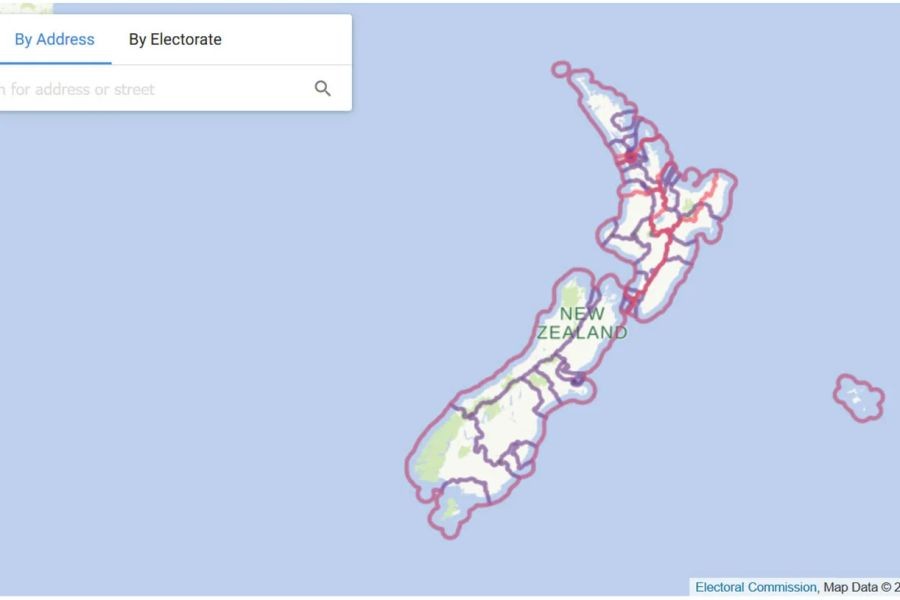New Zealand, a key player in the Trans-Pacific Partnership (TPP), stands at the crossroads of a dynamic trade landscape. The TPP, a free trade agreement originally involving 12 Pacific Rim countries, aims to enhance economic integration by eliminating tariffs and fostering trade across the region. For New Zealand, understanding the economic implications of the TPP is not only crucial for policymakers but also for real estate experts and investors who need to anticipate shifts in market dynamics. This article delves into the economic impact of the TPP on New Zealand, offering insights backed by data and real-world examples to guide real estate professionals in navigating this evolving landscape.
Understanding the Trans-Pacific Partnership
The Trans-Pacific Partnership was initially signed in 2016, encompassing 12 nations with a shared vision of reducing trade barriers and promoting economic growth. Although the United States withdrew in 2017, the remaining 11 countries, including New Zealand, continued under the Comprehensive and Progressive Agreement for Trans-Pacific Partnership (CPTPP). This agreement covers key areas such as trade in goods and services, intellectual property, and investment protection, impacting a wide array of industries.
Implications for New Zealand's Economy
New Zealand's participation in the TPP is projected to yield significant economic benefits. According to the Ministry of Business, Innovation and Employment (MBIE), the CPTPP could boost New Zealand's GDP by up to NZD 4 billion over the next decade. This increase is largely attributed to enhanced access to key markets like Japan, Canada, and Mexico, enabling New Zealand exporters to capitalize on reduced tariffs and expanded market opportunities.
Impact on Key Industries
The agricultural sector, a cornerstone of New Zealand's economy, stands to gain substantially from the CPTPP. With over 90% of New Zealand’s dairy exports going to TPP countries, the reduction in tariffs is forecasted to increase competitiveness and market share. Additionally, the agreement is expected to bolster the manufacturing and technology sectors by facilitating smoother supply chains and fostering innovation through enhanced intellectual property protections.
Real Estate Market Dynamics
For the real estate sector, the TPP's impact is nuanced. On one hand, increased economic growth may drive demand for commercial and residential properties as businesses expand and consumer spending rises. On the other hand, real estate professionals must be vigilant of potential shifts in foreign investment patterns. The relaxation of investment barriers might lead to increased foreign interest in New Zealand's property market, potentially impacting price dynamics and availability.
Case Study: Fonterra's Expansion in TPP Markets
Problem: Fonterra, New Zealand's leading dairy cooperative, faced challenges in accessing high-demand markets due to tariff barriers. These restrictions limited their competitive edge and market penetration in key Asian economies.
Action: With the advent of the CPTPP, Fonterra strategically leveraged the agreement to expand its presence in Japan and Mexico, where tariff reductions provided a more level playing field. The company focused on enhancing its product offerings and strengthening distribution networks.
Result: Within two years, Fonterra reported a 25% increase in sales to CPTPP countries, significantly boosting its revenue streams. The company also gained a stronger foothold in the Japanese market, diversifying its export portfolio.
Takeaway: This case underscores the importance of strategic planning and adaptation to new trade environments. Real estate professionals can draw parallels by anticipating and preparing for shifts in demand driven by international trade agreements.
Balancing Opportunities and Challenges
While the TPP presents numerous opportunities, it also poses challenges. Increased competition from other TPP countries could pressure domestic industries, necessitating innovation and efficiency. Furthermore, real estate investors must consider potential regulatory changes and market volatility resulting from the agreement.
Pros vs. Cons Analysis
Pros:
- Market Access: New Zealand businesses gain access to larger markets, enhancing export potential.
- Economic Growth: Projected GDP increase supports infrastructure development and employment growth.
- Innovation: Enhanced IP protections encourage technological advancements and R&D investments.
Cons:
- Increased Competition: Domestic industries may face heightened competition from more efficient TPP countries.
- Regulatory Challenges: Navigating new regulations and compliance standards can be complex for businesses.
- Market Volatility: Short-term market fluctuations may affect investment decisions and economic stability.
Common Myths & Mistakes
Myth: "The TPP only benefits large corporations."
Reality: While large corporations do benefit, small and medium-sized enterprises (SMEs) also gain from reduced barriers to entry and increased market access, fostering competitiveness.
Myth: "The TPP will lead to widespread job losses in New Zealand."
Reality: Although some sectors may experience job shifts, overall employment is expected to rise due to increased economic activity and new opportunities in emerging industries.
Myth: "Real estate prices will skyrocket due to foreign investments."
Reality: While there might be increased interest, the impact on real estate prices is moderated by existing regulations and market dynamics.
Future Trends & Predictions
Looking ahead, the TPP is likely to play a pivotal role in shaping New Zealand's economic landscape. As global trade dynamics evolve, further integration with new TPP members could enhance economic resilience and diversification. According to a report by Deloitte, New Zealand's exports to TPP countries could increase by 30% by 2030, driven by technological advancements and sustainable practices.
Conclusion
In summary, the Trans-Pacific Partnership offers significant opportunities for New Zealand's economy, particularly in enhancing trade relations and fostering innovation. For real estate experts and investors, understanding the implications of this agreement is crucial for strategic planning and investment decisions. As New Zealand navigates this evolving trade landscape, staying informed and adaptable will be key to capitalizing on new opportunities and mitigating potential risks.
Final Takeaways
- Leverage the TPP for expanded market access and economic growth.
- Anticipate shifts in real estate demand driven by trade dynamics.
- Prepare for increased competition and regulatory changes.
- Stay informed on future trade developments and industry trends.
What’s your take on the TPP's impact on New Zealand? Share your insights below!
People Also Ask (FAQ)
How does the TPP impact businesses in New Zealand?
New Zealand businesses leveraging TPP report increased export opportunities and competitiveness, particularly in the agricultural and technology sectors.
What are the biggest misconceptions about the TPP?
One common myth is that the TPP only benefits large corporations. However, research shows that SMEs gain access to new markets, fostering competitiveness.
What upcoming changes in New Zealand could affect the TPP?
By 2026, policy updates in trade regulations could shift the TPP landscape—stay ahead by adopting sustainable practices and technological advancements.
Related Search Queries
- Trans-Pacific Partnership New Zealand impact
- TPP benefits for New Zealand economy
- Real estate market trends in TPP countries
- New Zealand trade agreements 2025
- Economic growth projections for New Zealand
- New Zealand export opportunities under TPP
- Impact of foreign investment on NZ real estate
- Future of trade agreements in the Pacific Rim
- Regulatory changes in New Zealand trade policy
- TPP and small business opportunities in NZ































BraydenEls
15 days ago